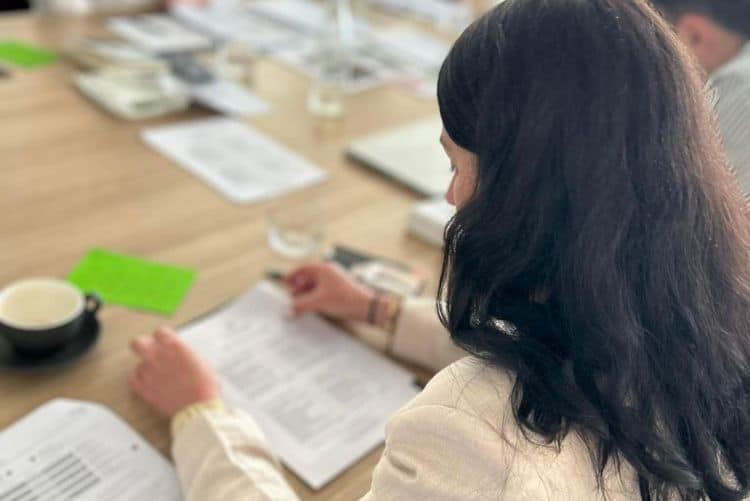Have you ever wondered how to get started as a facilitator? Or maybe you’ve been asked to facilitate an issue, new project or change in your workplace or team. If you have, then please forgive yourself if you headed straight into the drafting of an agenda with timelines and guest speakers ….. oh and booking the venue!
Where to Start
An important place to start is to work up your own set or review your set of principles for facilitation. These are your foundations on which you then build out your facilitation practice and session/s. The risk of not doing this is that what is supposed to be a facilitated session ends up being a pretty routinely directed meeting. And if you’re keen to develop your facilitation practice, you may find the invites to facilitate are few and far between because those purchasing your service can’t see or don’t trust how you will provide this service for them.
Get Recognised for your Facilitation
All facilitators have a style. There’s no doubt that your personality will play a part and the development of your natural style is super important.
“Who you are as a person will impact how you facilitate”
An authentic and natural style is what you will become recognised for, and this will work best if you build this on a set of principles or a foundation that holds solid. You will find this will attract those looking for facilitation services to you as they know that you will facilitate the same way no matter what you are facilitating, who is in the room and who you are facilitating for. This in turn gives them confidence that you are working towards the best outcome each and every time. In my experience of facilitating groups of 5 to 1500 for industry, commercial and government clients over the last 20 years, it’s critical to create a set of principles that help anchor you.
Key Facilitation Principles for Success
Remember principles are the foundation of how you will behave and operate when you facilitate. Yep this is the true starting point for effective facilitation NOT the agenda, timelines or runsheets. You have a choice now. You can create your own set of principles or get started by leaning on the expertise or borrowing someone else’s. Today, I want to share these from experienced facilitator Marsha Acker.
Principle 1 – Maintain Neutrality
Be intentional about the desired outcome and purpose of your session. Be clear about framing the topic (or dilemma) and guiding questions, and then be neutral about the content. This is about “leading from behind.” As a facilitator, you own the process of the meeting while letting the participants own the content of the conversation. This is how you let your participant’s imagination take over and get creative!
Principle 2 – Stand in the Storm
Creating space for new insights from your participants requires new thinking. Your job is to welcome this new thinking, even if it feels a bit stormy in the moment. Welcome different points of view and perspectives without taking sides and, if you’re not already hearing it, find a way to welcome difference of opinion into the conversation. Learn to stay with conflict rather than deflecting, changing the subject, or moving on to something new. Participants don’t naturally want to stay in conflict; they have patterns of avoiding it, often at all costs. But this is where the good stuff happens.
Principle 3 – Honor the Wisdom
Trust. Trust that the participants have the wisdom and everything else they need to solve their own problems creatively and innovatively. When you trust in your participant’s collective wisdom, there’s a sense of inclusiveness, less need to control what people say, and less fear that someone will “derail” the thinking. The diversity of perspectives represented by different voices will enable the group to innovate and move forward.
Principle 4 – Hold the Agenda
When facilitating sessions, be mindful of serving the emergent agenda. If you feel resistance from the participants about a decision or strong reluctance to move forward to another agenda item, you might be encountering their “emergent agenda” — what’s happening for them in the moment. It might be a topic that’s difficult to discuss but needs to be talked about in order for them to move forward, or it might have more to do with their dynamic than it does the topic at hand. When the emergent agenda appears in your session, it’s time to focus on what would serve the participants in the long run, not what you want to accomplish in that moment. It’s about continually asking, “How can I best serve the group?” and “What does this group really need right now?
Principle 5 – Be Future Focussed
To get the most out of your sessions, have a plan that includes questions designed to prompt the participants to think about the future — to think beyond the current dilemma to imagine what’s possible. After all, isn’t this the ultimate promise of facilitating a session in the first place?
Over to You
So, have I convinced you that building your own or reviewing a set of facilitation principles is super important? I really hope so! Have a go. You will carry them with you, facilitate by then and they will be the reason you become a recognised facilitator and why people purchase your facilitation services.
Until next time!



